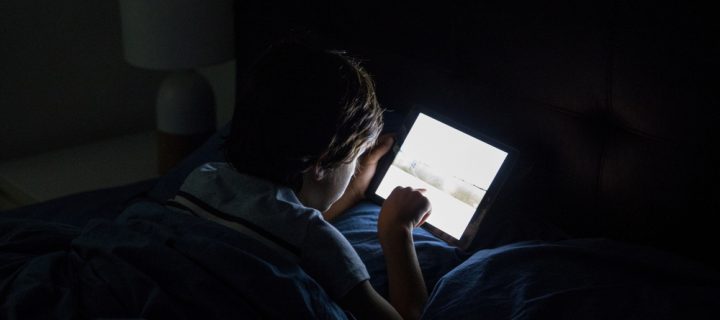Early intervention is often needed to help stop symptoms of insomnia in children following them into adulthood.
Sleepless nights can be difficult to manage. When they strike, you may feel like you’ve lost control of your daily narrative and are being forced to pull through the next day, nodding off between meals and barely able to operate. When it affects you it can be bad, but insomnia in your kids can seem even worse. The whole family may feel pulled down by your child’s inability to sleep when you most need them to.
With a bit of reflection and thinking, you may catch a glimmer of hope from the idea that your kids will someday grow out of their insomnia as they mature. One day they will finally actually feel tired at bed time, tuck in, and fall asleep before you need to, providing you with some much needed personal time alone, right?
Unfortunately, we’re here to dash that hopeful glass image with a sledge hammer.
Insomnia in Kids
According to new research done at Penn State, children who suffer from insomnia are quite likely to drag the disorder with them into young adulthood.
Researchers studied a random selection of hundreds of children aged 5 to 12 years old who had moderate-to-severe difficulties falling and staying asleep. Parents of these children provided study leaders with reports on their kids’ insomnia symptoms. The children also participated in an objective in-lab sleep study using polysomnography. (This technology can help identify sleep apnea in individuals and determine the quality of your sleep). The study went on to examine the sleep habits of 502 children involved in the study about 7 years later and again after 15 years.
Related: 6 Best Ways to Make Your Scrambled Eggs Amazing
What was found? For many people, their sleep problems persisted. Over 40% of the insomniac children in the study continued having problems with sleep as adolescents and adults. Just over a quarter of the children with symptoms of insomnia had their symptoms fall into remission by the time they hit adolescence and almost 19% experienced waxing and waning symptoms as adults.
“Indeed, the study found that insomnia symptoms in adolescents who slept short in the lab were 5.5 times more likely to worsen into adult insomnia… So, parents and clinicians should not assume that insomnia symptoms are benign complaints that will go away with age. That’s not what our study shows for a significant proportion of youth,” said Julio Fernandez-Mendoza, the study’s lead author.
Fernandez-Mendoza is an associate professor of psychiatry and behavioral health at Penn State.
He also noted that many adults who are insomniacs can likely trace the disorder back to their childhood.
Who is more likely to suffer from insomnia in childhood?
Just as is true with adults, children from all backgrounds can develop insomnia. Certain groups suffer from the disorder more often than others, however. Prior studies done by Fernandez-Mendoza have shown that girls are more likely to develop sleeping problems after puberty. African American children, children from other racial and ethnic minority groups, and those from households in lower socioeconomic brackets were also found to be more likely to suffer from insomnia that persists into adolescence and beyond than other groups.
Why sleep is important
If you are someone who doesn’t fall asleep easily, yet who doesn’t seem to require much sleep to feel completely refreshed, all the more power to you. You could simply be wired for lighter sleep in smaller amounts. You may not need that much rest. But for those who can’t get to sleep and who constantly feel exhausted due to the daily demands of getting up to care for family, to go to school, and to answer the call of work on a sleep debt, not getting enough sleep is a real problem.
A constant lack of adequate sleep can lead to several health challenges. These include a greater chance of developing diabetes, having a heart attack, suffering from a stroke, having a car accident, and more. A lack of sleep contributes to obesity, depression, lower sex drive, relationship stress, and a weaker ability to process information.
How to intervene
Every person and each family is different. It could be that by limiting access to screens in your home before bedtime, by promoting exercise , and by adhering to a strict family schedule, easy sleep can fall in line. For others, however, early intervention on a deeper level is necessary. Experts may prescribe behavioral therapy for insomnia (CBTI), which has been found to be quite effective in adolescents. Getting the right treatment for medical and psychiatric conditions can also play a strong role.
Don’t ignore the symptoms of insomnia in children. Talk to your doctor to begin building a path towards a solution.
photo credits: MPIX/Shutterstock.com












